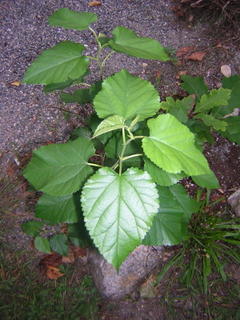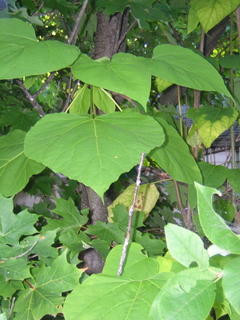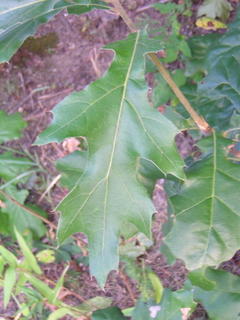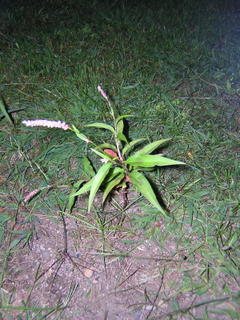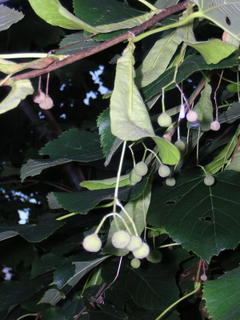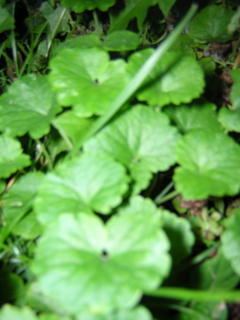House
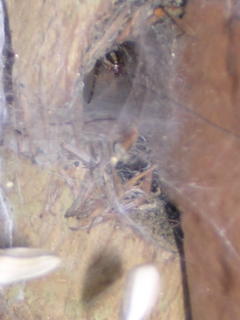 You can just barely see the legs of this common arachnid, known as the house spider (Achaearanea tepidariorum). I think this is a house spider. It is common across my yard, in every corner. Sticky silky webs with a hiding cone in the center. You can see this individual's former exo-skeleton in the foreground of the photograph. Everyone runs from spiders, but they are a beneficial addition to any garden. Only a few uncommon and easily identified spiders bite humans, most simply hunt insects and keep pests at bay. This one, like its cousin across the yard, has had to contend with squirrel droppings - seeds and husks from stolen vegetables in the neighborhood. The squirrels rest on the top of the post at the corner of the fence, thowing away what they don't want into the sticky corner web made by this corner-loving creature. The two objects in the lower part of this photograph are shells from sunflower seeds stolen from my sunflower plant that grew in the front yard this summer. Spiders are not insects. But they like to eat insects, and other spiders. They are hunters, all spiders are. They are like us in many ways. Solitary, protective of their nest eggs, clever and creative with their talents. They build their own homes, elaborately. There are other spiders in my yard besides this one. A garden spider built a large traditional spider's web between the wires running for electricity and those running for the telephone. I did not see it until a misting rain highlighted it with water droplets one morning. This one used to live by the gate latch, but its web was torn so many times by the opening of the door, it moved over here to the corner. Watch a spider some time. They know you are there. This spider knows my moves better than I do.
You can just barely see the legs of this common arachnid, known as the house spider (Achaearanea tepidariorum). I think this is a house spider. It is common across my yard, in every corner. Sticky silky webs with a hiding cone in the center. You can see this individual's former exo-skeleton in the foreground of the photograph. Everyone runs from spiders, but they are a beneficial addition to any garden. Only a few uncommon and easily identified spiders bite humans, most simply hunt insects and keep pests at bay. This one, like its cousin across the yard, has had to contend with squirrel droppings - seeds and husks from stolen vegetables in the neighborhood. The squirrels rest on the top of the post at the corner of the fence, thowing away what they don't want into the sticky corner web made by this corner-loving creature. The two objects in the lower part of this photograph are shells from sunflower seeds stolen from my sunflower plant that grew in the front yard this summer. Spiders are not insects. But they like to eat insects, and other spiders. They are hunters, all spiders are. They are like us in many ways. Solitary, protective of their nest eggs, clever and creative with their talents. They build their own homes, elaborately. There are other spiders in my yard besides this one. A garden spider built a large traditional spider's web between the wires running for electricity and those running for the telephone. I did not see it until a misting rain highlighted it with water droplets one morning. This one used to live by the gate latch, but its web was torn so many times by the opening of the door, it moved over here to the corner. Watch a spider some time. They know you are there. This spider knows my moves better than I do.It is a rainy and stormy day in metro-west Massachusetts. From light fluffy winter-looking clouds this morning to a thick blanket of water-drenched monsters this afternoon. Remnants, no doubt, of Rita. As this storm blows out to sea another one is upstaged in Washington. Architect of the Texas Republican revolution, Tom DeLay has been indicted for election-related crimes in Texas. He has had to step down as Majority Leader in the House of Representatives. This incredible story was pushed off the front page almost before it got there by a vote on John Roberts to become the next Supreme Court Justice and his immediate swearing in ceremony. Both stories drowned out the 62 killed by car bombs in Iraq today. And the hundreds of thousands still homeless from the past month of storms. It is almost too much to glean all at once and certainly today's one-story buzz-line media cannot do any of it justice. The cusp of an epoch has been passed and yet we keep building webs where the latch will surely tear them up again.
